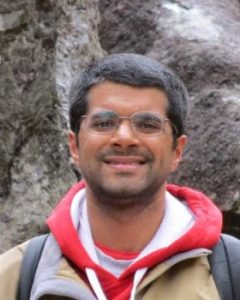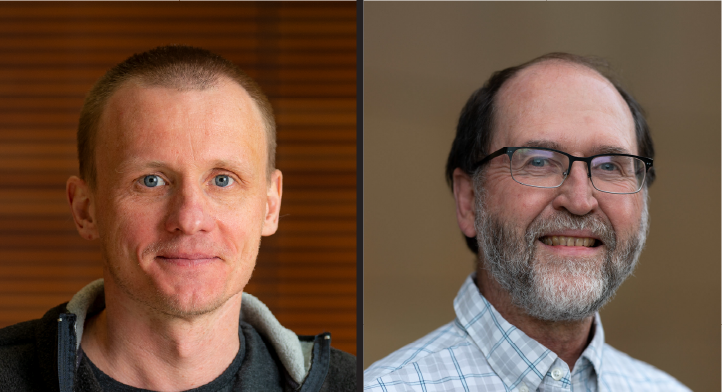Congrats to associate professor Victor Brar on earning an NSF CAREER award! CAREER awards are NSF’s most prestigious awards in support of early-career faculty who have the potential to serve as academic role models in research and education and to lead advances in the mission of their department or organization.

For this award, Brar will study the flow of electrons in 2D materials, or materials that are only around one atom thick. His group has already shown that when they applied a relatively old technique — scanning tunneling potentiometry, or STP — to 2D materials such as graphene, they could create unexpectedly high-contrast images, where they could track the movement of individual electrons when an electric current was applied. They found that electrons flow like a viscous fluid, a property that had been predicted but not observed directly.
“So now instead of applying electrical bias, we’ll apply a thermal bias, because we know things move from hot to cold, and then image how [electrons] move in that way,” Brar says. “Part of what’s driving this idea is that Professor Levchenko has predicted that if you image the way heat flows through a material, it should also behave hydrodynamically, like a liquid, rather than diffusive, which is how you might imagine it.”
One motivation for this research is to better understand the general flow of fluids, a problem that is often too complex for supercomputers to solve correctly. Because STP visualizes the fluid-like flow of electrons directly, Brar envisions this work as potentially providing a way of solving fluid mechanics problems by directly imaging flow, without the need of simulations, similar to what is done in wind tunnels.
“Also, there are these predicted phases of electrons that no one has observed before,” Brar says. “We want to be the first to observe them.”
In addition to an innovative research component, NSF proposals require that the research has broader societal impacts, such as working toward greater inclusion in STEM or increasing public understanding of science. Brar’s group is using haptic pens, devices that are commonly used in remote trainings for surgeons and in the gaming community because they give a gentle push back that mimics a realistic touch. By attaching the haptic pen to a scanning tunneling microscope (STM), people holding the pen can “feel” the individual atoms and surfaces that the STM is touching.
“We think materials science is one of those areas where feeling the forces that hold matter together may provide more intuitive than looking at equations,” Brar says. “We’re making virtual crystal lattices that you can touch with the haptic pen and feel how the atoms fix together, but we’re also making it so you can feel the different forces of the different atoms used.”
Brar plans to introduce the haptic pen and atom models into Physics 407 and develop a materials science module for the UW Alumni Association’s Grandparents University. And because the haptic pen relies almost entirely on touch, Brar plans to work with the Wisconsin Council of the Blind and Visually Impaired to improve access to materials science instruction for people with vision impairments.
